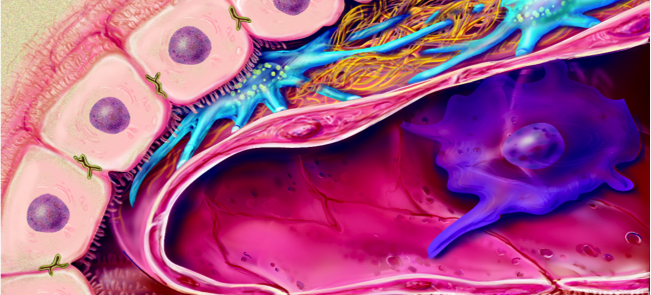We pursue studies related to liver biology and disease:
Molecular Regulation of Hepatic Injury, Fibrosis and Cancer
Our work explores the molecular mechanisms of wound healing and fibrosis in liver, and their links to primary liver cancer (hepatocellular carcinoma). We use a variety of animal and cell culture models to identify key genes/pathways, inflammatory mediators and signaling molecules regulating the activation of hepatic stellate cells, the principle fibrogenic cells in liver. Additionally, we test candidate antifibrotic lead compounds to develop potential new therapies for patients with chronic fibrosing liver diseases using cultured cells, precision cut liver slices from rodent and human liver, as well as specialized models of liver disease.
Specific projects include:
- Links between stellate cell activation, fibrosis and carcinogenesis
- Development of novel models of liver disease to clarify mechanisms of fibrosis
- Bioinformatics assessment of stellate cell responses using single cell RNA sequencing, high resolution imaging, and identification of novel mediators of activation
- Pathogenesis of hepatic fibrosis in non-alcoholic steatohepatitis, both in human disease and animal models
- Role of hepatic stellate cells in hepatic carcinogenesis
- Testing of antifibrotic lead compounds in animal models
- Clinical trials of antifibrotic therapies in patients with chronic liver disease

